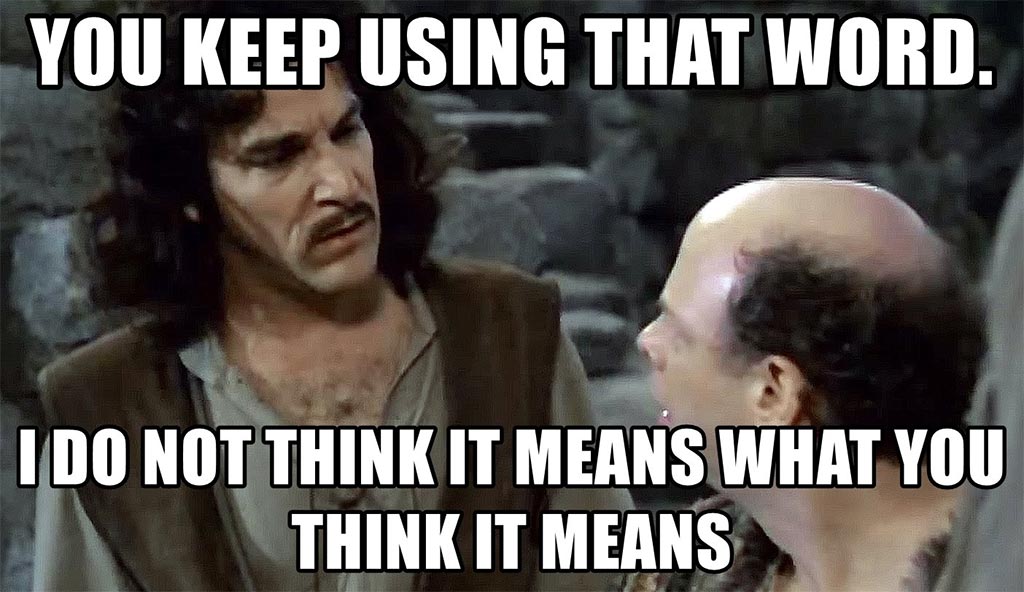Have you ever broken up with someone and wanted to explain why, but knew there’s no way they’d listen?
Perhaps they have a history of tuning out feedback they don’t like. Maybe they set up their defense for being called out for shitty behavior in advance, to the point where you can surmise how they’re going to justify it to themselves as soon as they do it.
Nevertheless. I will have my catharsis today.
Dear [redacted],
I’m sure the narrative you’re telling yourself goes something like:
I made decisions to take back some time for myself and they just couldn’t handle that.
I hear this spin constantly from influencers on social media who misuse pop psychology terms they’ve picked up from others who actually go to therapy.
Allow me to disabuse you of the idea that slinging these magical phrases around will prevent others noticing your lack of integrity.
“Boundaries”
This is how boundaries work in good faith communication:
I communicate, in advance of any conflict, an action that someone in my life could take and inform them of how I would respond if they did.
Some examples:
- “If you have sex with someone else, I will leave this relationship.”
- “If you bring up this topic again, I will walk away.”
- “If you don’t wear a mask, I won’t come to the party.”
- “If you call me without prior notice, I won’t pick up the phone.”
Notice there is no assertion of power over what someone else can and can’t do. There’s an inherent acknowledgement of their agency to make their own decisions and our agency to react to that decision. When the initial action occurs, we can react the way we shared at our discretion without the other person being blindsided by it. We can also consider clarifying or modifying that boundary for next time.
I know I’ve explained this to you before, but it hasn’t fully integrated yet.
“Self Care”
I flake on plans all the time, but I don’t flake on plans that I confirm with definitive yes RSVPs. And I don’t do it last minute when my friend is relying on me to get to work and survive.
I especially don’t flake on appointments with people whose income relies on them spending their time efficiently. I especially especially don’t do it to friends who are already being extra accommodating for me for said appointment.
If it happens once and there’s a genuine apology, fine. Sometimes life happens. But when you do it repeatedly, it reveals you don’t respect others. Disregarding someone else’s time, attention, energy, and income to “reclaim” your own is not #selfCare. It’s narcissism.
I knew our friendship was over when you made an off-hand remark to my partner (paraphrasing):
I love how we have a friendship where it’s no big deal if I cancel or am late for things. I love that you’re so cool about that!
You weren’t sorry. You don’t recognize how much those things hurt and inconvenience and cost people you claim to care about. And you had no intention of changing.
“I’m Doing This for Your Own Good” (Altruism)
When you ask someone for a favor and promise them you’ll do the same in return, then when it comes time to do your side of the deal you cancel those plans and pretend you don’t remember even making the deal… that’s unequivocally shitty.
And when you come up with excuses that include (paraphrase):
I’m just looking out for you and Kalbi.
Sure. Perhaps that’s the case.
If you told me months ago when you knew all this about him last time he stayed with you, it would be understandable. When you don’t even tell me directly until I have to track you down after hearing about it secondhand a few weeks before my travel plans, that’s cowardly and inconsiderate. I could’ve easily made other arrangements if you told me right away.
And we wouldn’t have spent several days watching your disabled pet — who had much worse struggles than Kalbi at the time — while you traveled with the clear understanding you’d be returning the favor.
Thanks for eventually referring me to a caring, trustworthy, reliable sitter. But that cost me about $800 that I wasn’t expecting to need to pay while being between jobs. You knew this, and yet you didn’t offer to help me cover that expense either.
Glad We Could Clear This Up
To wrap things up so you fully understand, here are some examples of what are not boundaries, self care, or altruism:
- Telling someone after the fact that something they did broke an unspoken boundary.
- “I’m canceling established plans with you at the last minute.”
- “I’m not following through with an agreement I made with you.”
- “I’m not proactive in directly communicating with you when my actions affect you.”
- Insincere apologies and repetition.
Go to therapy. Stop using these buzzwords you’ve picked up to justify selfish actions. Do better with your remaining friendships.
